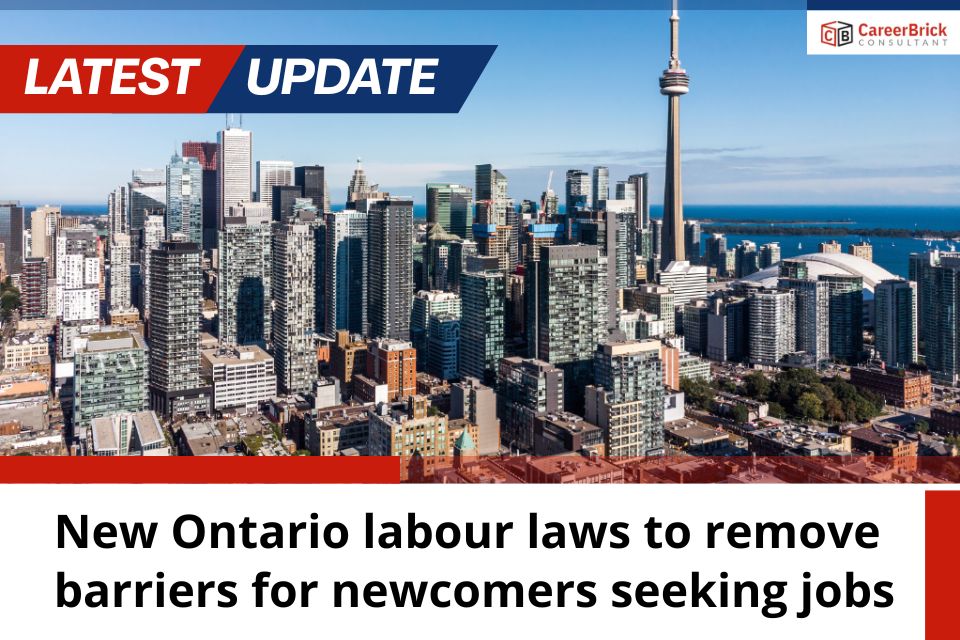The Ontario Immigrant Nominee Program (OINP) has unveiled the Regional Economic Development through Immigration (REDI) pilot program, a new initiative aimed at boosting economic growth in rural and northern Ontario.
This pilot program will run from January 2 to December 31, 2025, and seeks to attract up to 800 highly skilled immigrants to four regions:
- Lanark
- Leeds and Grenville
- Sarnia-Lambton
- Thunder Bay
Successful applicants will receive a provincial nomination through the OINP, enabling them to apply to Immigration, Refugees and Citizenship Canada (IRCC) for permanent residency.
How the REDI Program Works
Applications under the REDI pilot will be processed via the OINP’s Employer Job Offer streams, with each participating region receiving 200 additional nominations. The program targets labour shortages in key sectors that drive local economic growth, including healthcare, technology, and skilled trades such as construction.
Eligibility
To qualify for the REDI pilot program, newcomers must meet the eligibility criteria for one of the Ontario Immigrant Nominee Program (OINP) job offer streams.
A key requirement for these streams is a valid job offer from an employer in Ontario. Specifically, to be eligible under the REDI pilot, the job offer must come from a business located within one of the targeted regions participating in the program.
For all streams, applicants must:
- Have the intention to reside in Ontario.
- Be licensed or authorized to practice their profession if it is in a regulated occupation.
Below are the specific eligibility criteria for each stream.
Employer job offer: Foreign Worker Stream
|
Stream |
Job offer requirements |
Candidate requirements |
|
Employer job offer: Foreign Worker Stream |
- Full-time and permanent. |
- Minimum work experience. |
Regulatory Requirements and Work Experience for the Foreign Worker Stream
In Canada, certain professions are regulated at the provincial or federal level by certified regulatory boards and authorities. To meet the minimum work experience requirements under the Foreign Worker Stream, eligible candidates must satisfy one of the following conditions:
- If the job requires a mandatory license or authorization to practice: The candidate must possess a valid license or authorization issued by the appropriate regulatory authority in Ontario.
- If the job does not require a license or authorization: The candidate must have at least two years of work experience (within the past five years) in the same occupation as the National Occupation Classification (NOC) code of the job offer.
Work experience for this stream can be acquired through either full-time or part-time employment.
Employer Job Offer Requirements
Under the Employer Job Offer: Foreign Worker Stream, job offers must be essential to the employer’s business. This means the role should align with the employer’s existing business operations and be crucial for maintaining or expanding ongoing business activities.
The median wage for a position can be determined by searching the job title, NOC code, and work location on Canada’s national Job Bank website.
Employer job offer: International Student Stream
|
Stream |
Job offer requirements |
Candidate requirements |
|
Employer job offer: International Student Stream |
- Full-time and permanent. |
Education and Wage Requirements for the Employer Job Offer: International Student Stream
To satisfy the education requirements under the International Student Stream, candidates must have completed an educational program at an eligible Canadian institution in Ontario within two years before applying. The program must meet one of the following criteria:
- An undergraduate degree or diploma of at least two years in length when studied full-time.
- A graduate degree or diploma of at least one year in length when studied full-time.
- A college graduate certificate program of at least one year in length when studied full-time.
- A university graduate certificate program of at least one year in length when studied full-time.
Wage Requirements
To meet the low wage threshold for a job offer, candidates should consult Canada’s Job Bank. By entering the NOC code, occupation title, and work location, candidates can determine the low wage level for their position.
For candidates already employed in the offered position, the job’s wage must meet or exceed both the low wage level and the current wage paid by the employer for that role.
Employer job offer: In-Demand Skills Stream
|
Stream |
Job offer requirements |
Candidate requirements |
|
Employer job offer: In-Demand Skills |
- Full-time and permanent. |
- Nine months’ work experience. |
Eligibility Details for the Employer Job Offer: In-Demand Skills Stream
A comprehensive list of eligible occupations for the In-Demand Skills Stream under the Employer Job Offer category is available here.
Candidates who have completed their education outside of Canada must include an Education Credential Assessment (ECA) with their application to verify that their foreign education meets the program's eligibility requirements.
For detailed information on all eligibility criteria and additional considerations, visit our dedicated webpage on the Ontario Immigrant Nominee Program (OINP).
Background
The REDI pilot program builds on the success of the OINP Regional Pilot, which concluded in 2020, demonstrating the OINP’s commitment to addressing critical labour shortages through skilled immigration.
The Regional Pilot allocated approximately 300 additional provincial nominations through OINP’s job offer streams to participating regions, including Chatham-Kent, Cornwall, and Belleville/Quinte West. The program successfully met its allocation target in 2020 and was deemed a success by the OINP.
The OINP projects that enabling skilled newcomers to work in professions aligned with their education and training could contribute up to 100 billion CAD to Ontario’s GDP over the next five years.
About the Provincial Nominee Program (PNP)
Canada’s Provincial Nominee Programs (PNPs) are economic immigration pathways that enable provincial governments to nominate foreign nationals for settlement within their regions.
The primary goal of the PNP is to distribute the benefits of immigration more evenly across the country. While many immigrants tend to settle in Canada’s three largest metropolitan areas—Toronto, Vancouver, and Montreal—this concentration benefits urban centers but often leaves smaller communities struggling to attract newcomers.
PNPs address this imbalance by creating opportunities for rural and smaller communities to welcome skilled immigrants who can help fill labour shortages and contribute to Canada’s demographic and economic goals.







